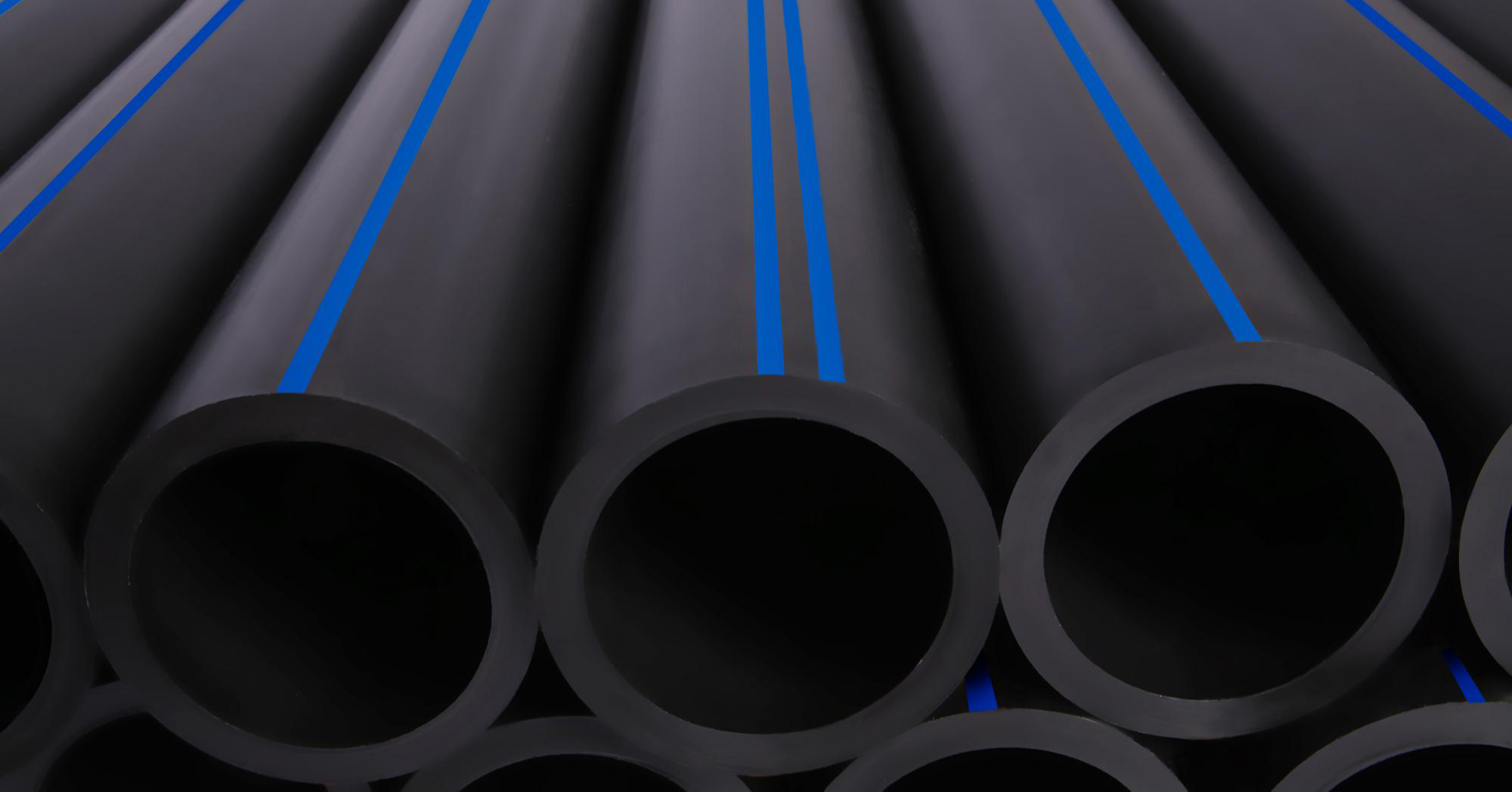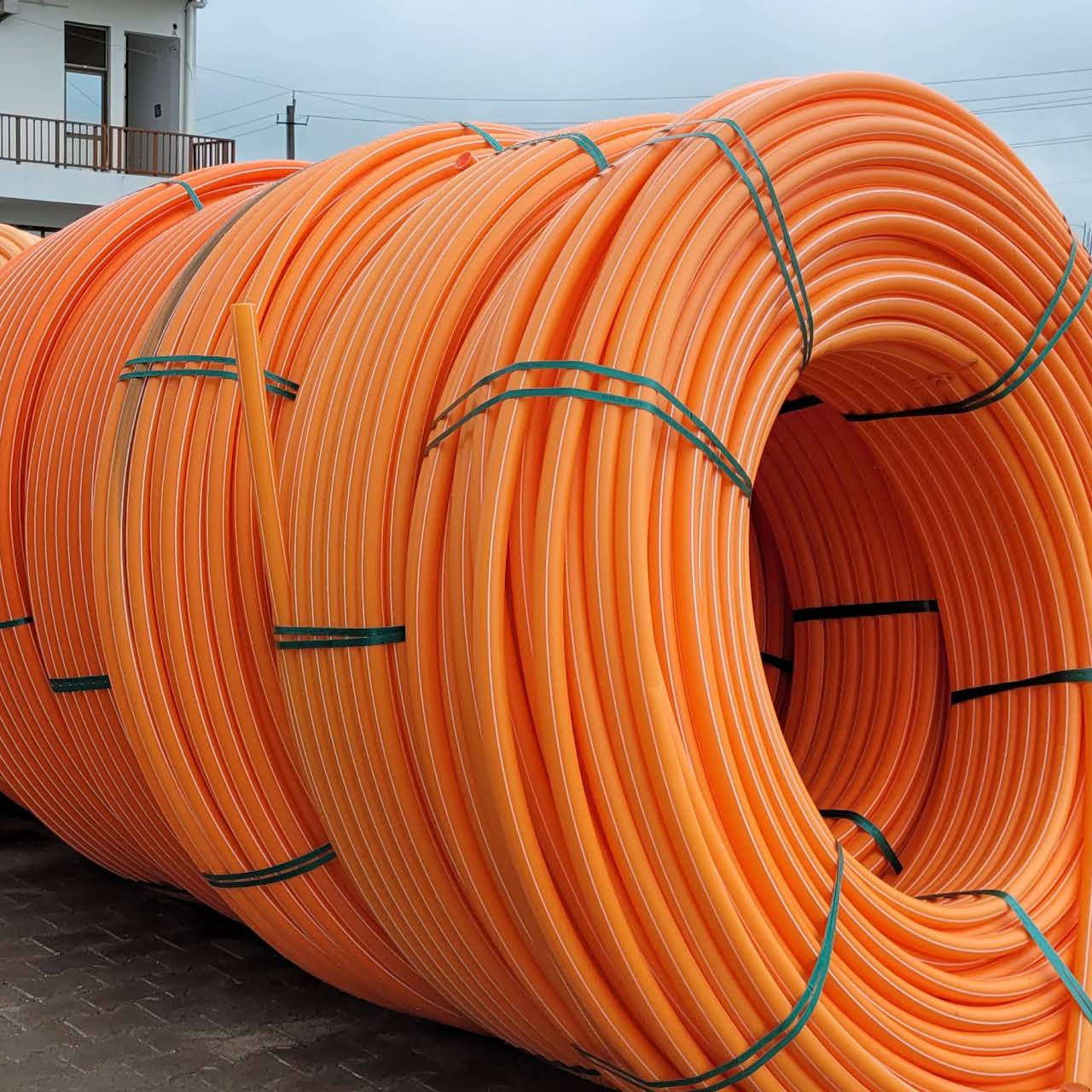Why Pipe Supplier American Plastics Midland Is the Top Choice for Contractors
Comprehending the Key Benefits of HDPE Pipe for Water and Wastewater Monitoring
The usage of HDPE pipe in water and wastewater management presents various advantages that merit consideration. Its phenomenal sturdiness and long lifespan make it a recommended option for numerous jobs. In addition, the product's resistance to rust and chemical damages enhances its reliability in various atmospheres. Nevertheless, the benefits prolong past simply longevity and resistance. Discovering its cost-effectiveness and environmental effect reveals a lot more engaging reasons for its prevalent adoption in contemporary framework
Remarkable Sturdiness and Long Life

HDPE pipe attracts attention for its exceptional sturdiness and longevity, making it a recommended choice in water monitoring systems. Built from high-density polyethylene, these pipes can endure substantial stress and stress and anxiety, making sure trustworthy efficiency gradually. Their durable nature allows them to sustain severe environmental problems, including temperature fluctuations and dirt movements, which can trigger other products to fall short.
The lifespan of HDPE pipes commonly surpasses half a century, giving an affordable solution for towns and industries alike. Furthermore, the material's light-weight residential or commercial properties streamline installation, minimizing labor prices and timeframes. This longevity minimizes the demand for frequent repairs or replacements, even more improving its economic allure.
In water monitoring applications, the integrity of HDPE pipes suggests less interruptions and enhanced service continuity, making them indispensable to sustainable facilities development. The combination of longevity and long life strengthens HDPE's role as a cornerstone in reliable water administration services.

Resistance to Rust and Chemical Damages
While numerous products surrender to corrosion and chemical damage with time, HDPE pipelines display exceptional resistance, making them excellent for various water monitoring applications. This strength stems from the molecular framework of high-density polyethylene, which is naturally non-reactive and does not rust like steels or degrade from exposure to rough chemicals. Consequently, HDPE is very reliable in settings with aggressive compounds, such as wastewater systems that may include acids, bases, and natural solvents.
Furthermore, HDPE pipelines can endure ecological elements such as soil level of acidity and saline conditions, even more improving their viability for varied applications (American Plastics HDPE Pipe Manufacturing). Their capacity to maintain structural integrity over time decreases the danger of leakages and failures, which is important in making certain the security and reliability of water distribution and wastewater management systems. As a result, the resistance to rust and chemical damage considerably adds to the overall performance and durability of HDPE piping services
Cost-Effectiveness and Financial Advantages
When considering the monetary implications of water management systems, the cost-effectiveness of HDPE pipes becomes evident. These pipes use reduced installation and maintenance prices compared to traditional materials like metal or concrete. Their lightweight nature streamlines transportation and setup, leading to lowered labor expenses. Furthermore, HDPE pipelines exhibit a long life expectancy, commonly going beyond half a century, which converts to fewer substitutes and long-term financial savings.
The resistance of HDPE to rust and chemical damages decreases the demand for expensive fixings and replacements. The pipelines additionally sustain effective water flow, decreasing power costs linked with pumping systems. By mitigating leakages and water loss, HDPE pipelines add to considerable financial benefits for communities and markets alike. In general, the preliminary investment in HDPE piping can generate considerable economic returns over the lifespan of the water management system, more tips here making it a prudent choice for sustainable framework development.
Ecological Sustainability and Lowered Impact

Versatility and Flexibility in Setup
As a result of their special buildings, HDPE pipes supply remarkable convenience and versatility in setup, making them appropriate for a large range of applications. Their light-weight nature permits simpler handling and transportation, lowering labor expenses and setup time. HDPE pipes can be bent and formed to fit different terrains and job needs, which is specifically beneficial in challenging environments.
In addition, their resistance to corrosion and chemical damage permits installment in varied setups without the demand for specialized protective finishes. The capability to fuse joints develops a continuous, leak-free system, boosting the overall integrity and integrity of the installment. HDPE's adaptability additionally fits ground motion, minimizing the threat of damages in locations susceptible to moving soil. On the whole, these attributes make HDPE pipelines not just flexible however likewise a favored choice for water and wastewater monitoring systems.
Often Asked Inquiries
How Does HDPE Pipeline Compare to PVC in Water Administration Applications?
HDPE pipeline offers remarkable versatility, resistance to deterioration, and longevity contrasted to PVC. Its lighter weight promotes much easier installment, while its long lifespan decreases substitute expenses, making HDPE hop over to here a favored choice in water monitoring applications.
What Is the Lifespan of HDPE Pipeline Under Common Conditions?
Under typical problems, HDPE pipes can have a lifespan varying from 50 to 100 years. Their longevity and resistance to rust add to their long-lasting performance in different applications, making them a dependable option for infrastructure.
Are HDPE Water Lines Recyclable After Their Life Span?
Yes, HDPE pipelines are recyclable after their service life. hdpe pipe in stock Midland TX. They can be refined and repurposed into brand-new products, substantially lowering ecological impact and advertising sustainability within the market, making them an environmentally friendly choice for piping options
What Is the Installment Refine for HDPE Pipes?
The installation process for HDPE pipelines involves site prep work, trenching, pipeline blend or mechanical signing up with, backfilling, and pressure screening. Proper strategies assure a durable and efficient system for carrying water and wastewater properly.
Can HDPE Pipeline Be Utilized for Both Safe And Clean and Non-Potable Water Systems?
Yes, HDPE pipes can be used for both safe and clean and non-potable water systems. Their convenience, resilience, and resistance to rust make them suitable for different applications, making certain secure and reliable transportation of water in various contexts.